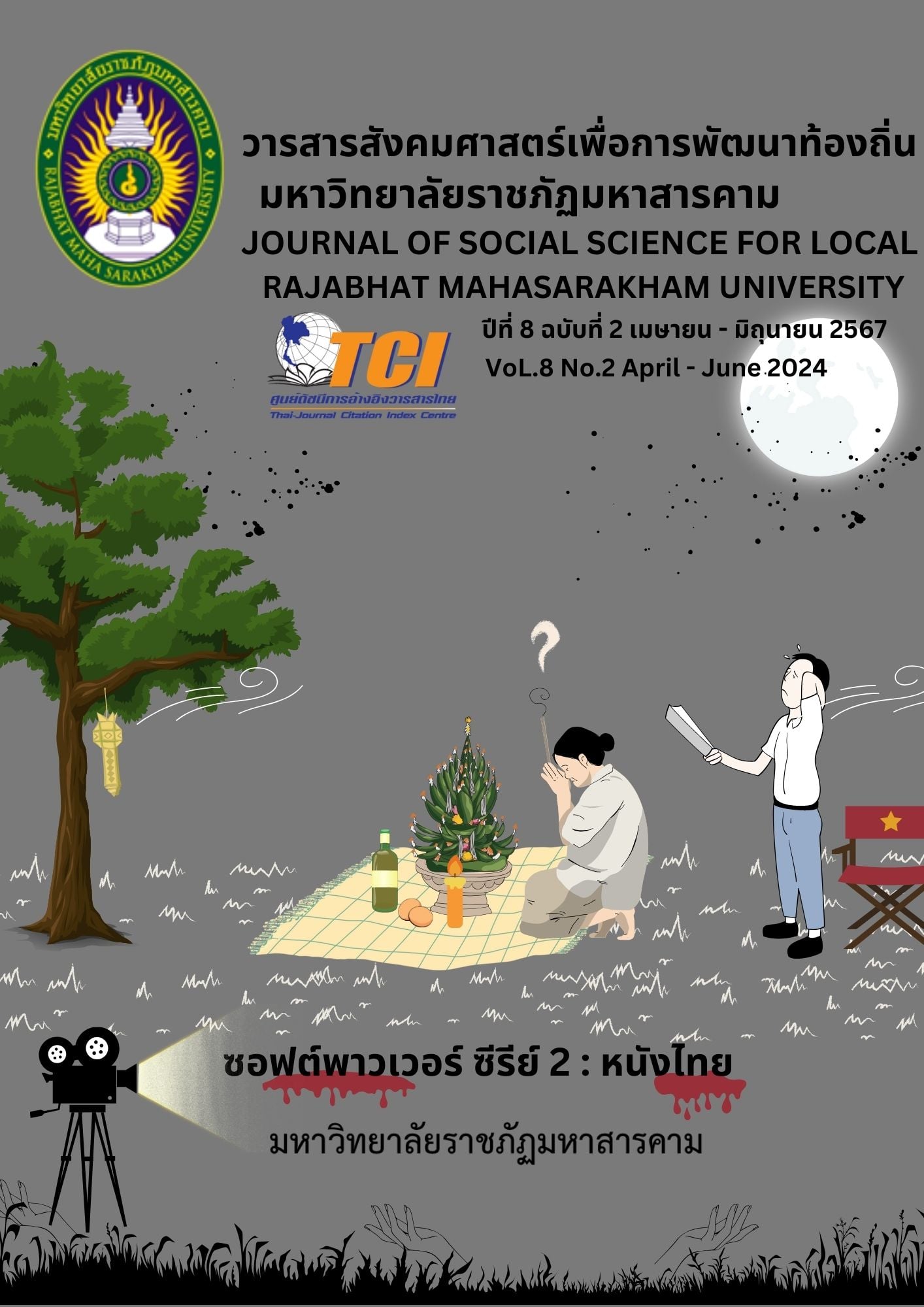The Program to Enhance Teachers’ Digital Competency in The Secondary Educational Service Area Office Karasin
Keywords:
Development of the Program, Enhance a Digital Competency, TeacherAbstract
This research consists purposes were 1. to study the current condition. Desired condition and the essential needs of digital capacity building for teachers and 2. to create and evaluate digital capacity building programs for teachers. is a combined method research. Research tools include questionnaires, interviews, and assessments. The sample group consisted of 322 teachers under the Kalasin Secondary Educational Service Area Office using the Crejcie and Morgan (1970) formulas and stratified random sampling. Classified by educational institution size and a group of 8 informants who came from purposive selection. Then the data collected from the questionnaire and evaluation form were analyzed using descriptive statistics consisting of percentages, averages, and data obtained from the interviews. Let's analyze it in terms of content. The results of the research found that 1) the current state of digital competency building for teachers The overall level was at a moderate level (x̅=2.93, S.D.= 0.61). The overall desirable conditions of digital competency building for teachers were at the highest level (x̅=4.68, S.D.= 0.43), and the necessary needs for development Digital competencies for teachers Arranged from highest to lowest, they are: 1) the aspect of adapting to digital change (x̅=4.51, S.D.= 0.48) and 2) the aspect of solving problems with digital tools (x̅=4.65, S.D.=0.49) 3) the aspect of using digital (x̅ =4.61, S.D.=0.51) and 4) digital literacy (x̅=4.94, S.D.= 0.24) and 2) the digital competency building program for teachers consists of (1) principles (2) objectives (3) content consisting of 4 modules: Module 1 Adapting to digital transformation Module 2 Problem solving with digital tools Module 3 Using digital Module 4 Digital literacy (4) Development activities and tools and (5) Measurement and evaluation The results of evaluating the suitability and feasibility of the program were at the highest level (x̅=4.76, S.D.= 0.33).


